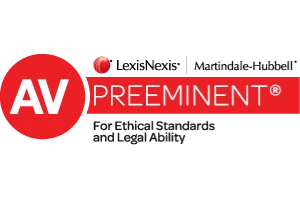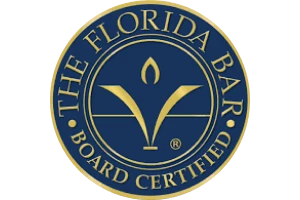Veterans Treatment Court
Can Veterans in Felony and Misdemeanor Cases Receive Help and Avoid Jail?

Veterans Treatment? Yes. In 2015, the Chief Judge of the circuit court in Hillsborough County entered an order significantly expanding treatment resources available to veterans whoare charged with both misdemeanor and felony criminal offenses. Prior to this order only misdemeanor charges were eligible for this opportunity to have charges dismissed. The court noted that there were a large number of veterans suffering from military service related mental illnesses, traumatic brain injuries, substance abuse issues, and psychological issues that may have caused them to enter the criminal justice system. The history of the Treatment Court can be found here. Help for veterans is available from a certified expert, W.F . “Casey” Ebsary, Jr.
Veterans Treatment Court: A Lifeline for Veterans in Criminal Cases
Introduction: Offering a Path to Recovery
Veterans who find themselves entangled in the criminal justice system often do so due to issues directly linked to their service, such as mental health challenges, traumatic brain injuries, and substance abuse disorders. The Veterans Treatment Court (VTC) in Hillsborough County provides an essential service, helping veterans charged with both misdemeanors and felonies avoid jail time by offering treatment and support. If you or a loved one is a veteran facing criminal charges, understanding the resources and support available through the VTC could be the first step towards a brighter future. Take action now by contacting a certified expert like W.F. “Casey” Ebsary, Jr. for guidance.
Understanding the Veterans Treatment Court Program
Expanding Opportunities for Veterans
In 2015, a significant order from the Chief Judge of the circuit court in Hillsborough County expanded the Veterans Treatment Court’s scope. Previously, only veterans with misdemeanor charges could benefit from this program. However, recognizing the growing number of veterans with service-related issues leading to criminal behavior, the program now includes both misdemeanor and nonviolent felony charges. This expansion acknowledges the unique circumstances faced by veterans and aims to provide them with the help they need.
The History and Purpose of Veterans Treatment Court
The Veterans Treatment Court was established to address the specific needs of veterans within the criminal justice system. It operates under the principles of therapeutic jurisprudence, which prioritizes treatment and rehabilitation over punishment. This court system aims to treat veterans with the dignity and respect they deserve, providing a supportive environment where they can address their issues and work towards recovery.
Terms of Admission to the Program
Veterans wishing to enter the VTC must agree to the terms outlined in a memorandum of understanding. This agreement details the case processing procedures within the court, designated as division “V” in both Circuit and County Criminal Court. A crucial requirement is the waiver of the right to a speedy trial, meaning if the veteran fails to complete the program, their case will be refiled in criminal court.
Participation Requirements
Participants in the VTC must adhere to several conditions, including attending regular court hearings and engaging in assessment and treatment programs prescribed by licensed service providers. Non-compliance with these conditions can result in enforcement actions, such as contempt of court, which may include jail time. However, the primary goal is to support the veteran through treatment to ultimately dismiss the charges.
Eligibility for Veterans Treatment Court
Who Qualifies for the Program?
To be eligible for the Veterans Treatment Court, the veteran must face charges that include ordinance violations, misdemeanor offenses (excluding DUI), and nonviolent third-degree felony offenses. It’s important to note that felony DUI cases are not eligible for this program. Veterans who are discharged unsuccessfully from the program will have their cases transferred back to the original criminal division.
Treatment with Honor and Respect
The VTC is built on the foundation of therapeutic jurisprudence, emphasizing treatment and support over incarceration. By providing veterans with the tools and resources to address their issues, the court aims to help them reintegrate into society as healthy, productive individuals. This approach not only benefits the veterans but also serves the broader community by reducing recidivism and promoting public safety.
Help for Active-Duty Military Personnel
Active-duty military personnel can also seek assistance through the Veterans Treatment Court, even though they may not meet the traditional definition of a veteran. Florida Statute 250.01 includes provisions for active-duty service members, allowing them to benefit from the same treatment opportunities as veterans. This inclusive approach ensures that all those who serve or have served can access the support they need.
The Path to Record Sealing and Expungement
Completing the Program
Upon successful completion of the Veterans Treatment Court program, participants may be eligible to have their records sealed or expunged under Florida Statute 943.058. This process is handled by the judge who oversaw their case in the VTC. Sealing or expunging records can be a crucial step for veterans as they seek to rebuild their lives, free from the stigma of a criminal record.
Steps to Sealing or Expunging Records
The process of sealing or expunging records involves several steps, including filing a petition with the court, providing necessary documentation, and attending a court hearing. It is advisable to seek legal assistance to navigate this process effectively. Take action now to ensure you understand and complete the necessary steps for a successful record sealing or expungement.
Conclusion: A Lifeline for Veterans in Need
The Veterans Treatment Court offers a vital lifeline for veterans facing criminal charges, providing them with the support and treatment they need to address the underlying issues contributing to their legal troubles. By participating in this program, veterans can avoid jail time, receive necessary treatment, and work towards a brighter future.
Seek Help Today
If you or a loved one is a veteran facing criminal charges, don’t wait to seek help. Contact a certified expert like W.F. “Casey” Ebsary, Jr. to learn more about the Veterans Treatment Court and how it can provide the support and resources needed for recovery. Take action now to secure a better future for yourself or a loved one.
Final Thoughts
The Veterans Treatment Court represents a compassionate and effective approach to addressing the unique needs of veterans within the criminal justice system. By focusing on treatment and rehabilitation, this program offers a second chance for those who have served our country, helping them reclaim their lives and futures. Act now to take advantage of this invaluable resource and begin the journey towards recovery and reintegration.
What Are the Terms of the Admission to This Veterans Treatment Court Program?
The terms of the admission to this program are contained in a memorandum of understanding that details the processing of cases in Veterans treatment court. In Circuit Court and County Criminal Court, the court is designated as division “V”. The program requires waving speedy trial, since failure to complete the program results in the case being refiled in criminal court. Sometimes veterans are placed in a treatment program by a licensed service provider and failure to comply with the treatment professional’s conditions can be enforced by contempt of court – that can include jail. The defendant must attend court hearings set by the veterans treatment Court judge and participate in assessment and treatment to help move the case to dismissal.
Who Is Eligible for Veteran’s Treatment Court?
The eligible charges are ordinance violations, misdemeanor offenses other than DUI, and nonviolent third degree felony offenses. Felony DUI is excluded from the program, so there will not be any relief there. If the court unsuccessfully discharges the veteran from the program, the case is transferred back to the criminal division where it was originally filed. Generally, veterans treatment court helps treat veterans with honor and respect and is modeled after principles of therapeutic jurisprudence. In other words, instead of sending people to jail, we send them to get help.
Can Active-Duty Military Personnel Get Help in the Veterans Treatment Court?
A key component of this program is that the defendant must be willing to accept help. After completing this program records can be sealed or expunged under Florida Statute 943.058. Such a sealing of records is handled by the judge that originally handled the case in veterans treatment court. Florida Statute 250.01 defines active duty military, and some of these people may be also helped by the treatment court, notwithstanding the fact that they are not technically veterans under many other legal definitions.










